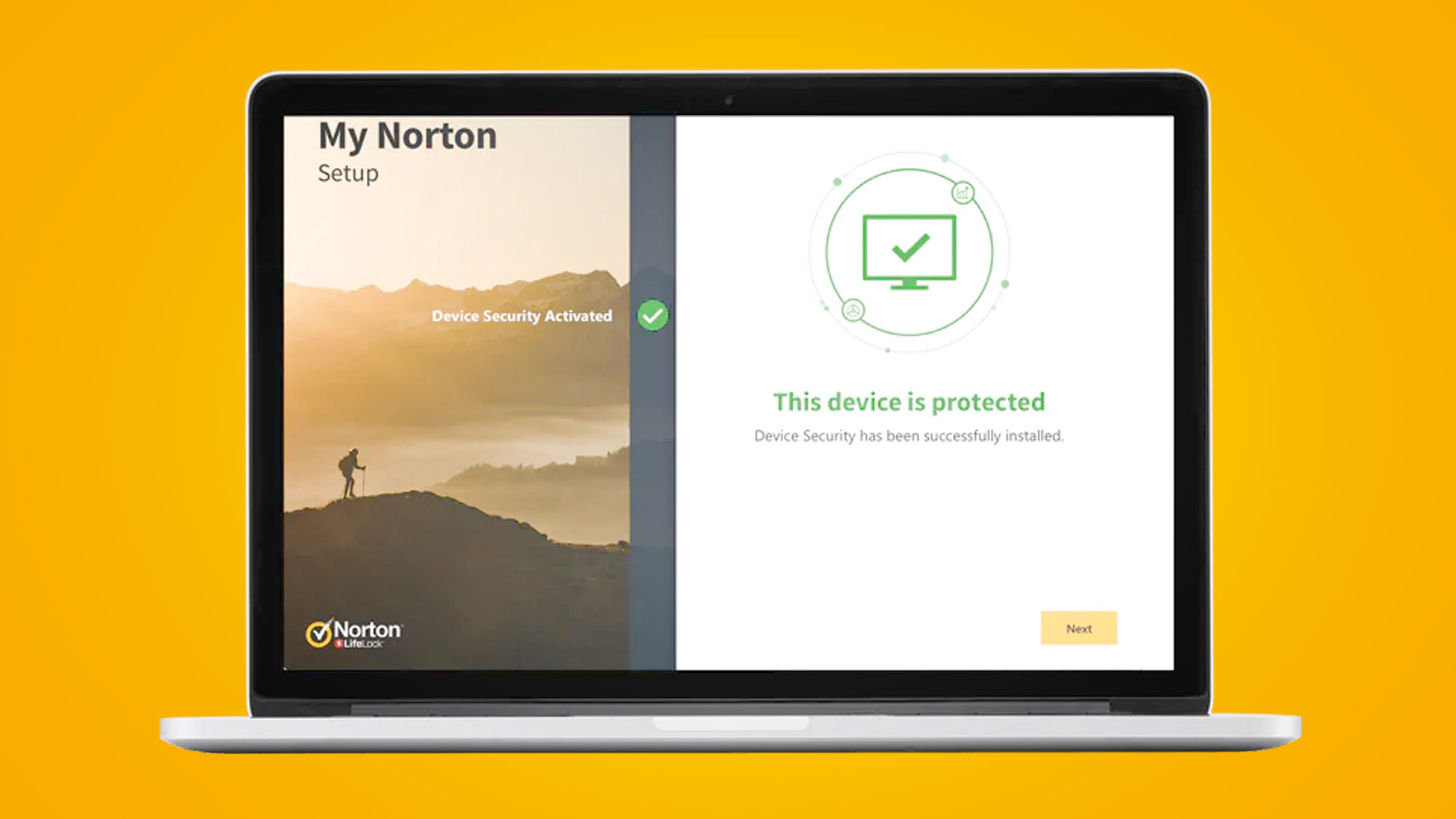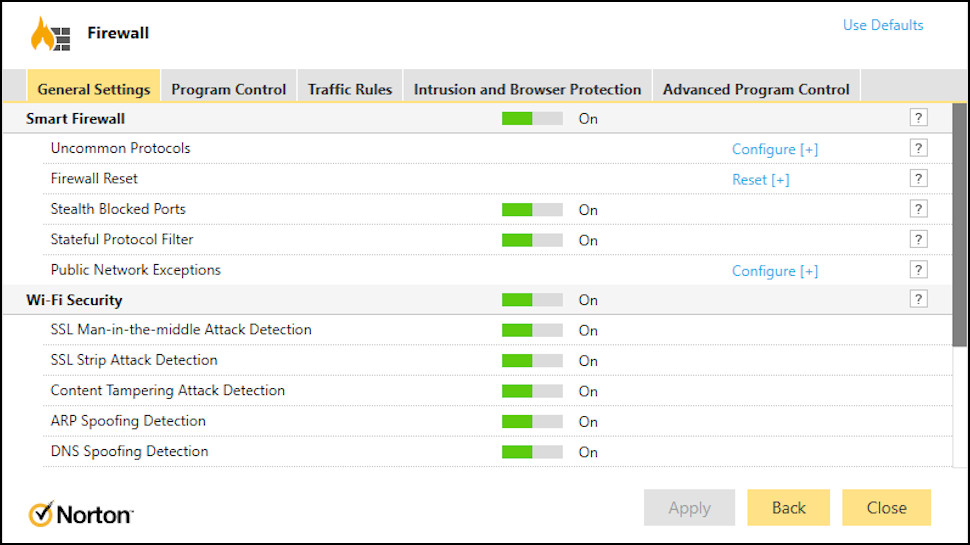What is Norton Smart Firewall and what does it do?
See how Norton's intelligent firewall can help keep your PC safe

Norton Smart Firewall is, as the name suggests, an intelligent firewall that’s included in the company’s antivirus and security suite products.
Like any firewall, it is designed to protect your PC from intruders and attacks on your system, keeping a close eye on network traffic going both ways - both inbound and outbound.
What exactly are the firewall’s capabilities in terms of being ‘smart’ though? That’s what we’re going to examine in this article, talking you through the various features of Norton Smart Firewall and discussing exactly what it does in terms of bolstering your cybersecurity defenses.
What is Norton Smart Firewall?
Norton Smart Firewall monitors the network traffic going to and coming from your PC, but with a major difference: it’s designed as an intelligent system which is helpful in several ways. Firstly, it’s clever enough so that it doesn’t interrupt your daily computing activities much, as we found when using the firewall in our review of Norton’s antivirus solutions.
If the firewall does come across something that needs your attention, though, it presents a good deal of info on the potential threat to help you decide what must be done.
Typically – as you’ll be aware if you’ve had much experience with firewalls – an average product will simply flag up a process and ask if it should be allowed to use your net connection. Now, if you know what this process or program is, and that it’s a trusted app, that’s all well and good.

But if something pops up that you’re not sure about, you could be left scratching your head, and maybe heading to Google to see if you can find out what the process might actually be. Or less tech-savvy users might just be left completely confused.
Sign up to the TechRadar Pro newsletter to get all the top news, opinion, features and guidance your business needs to succeed!
What Norton Smart Firewall does is to provide useful details alongside the prompt asking whether any given program should be allowed to go online. For example, it might tell you that the app isn’t digitally signed, which makes it less worthy of your trust – so you might then decide caution is the better part of valor, and to block the process.
These kinds of additional details could come in really helpful for novices in particular, but even more experienced PC enthusiasts should find them useful. And note that while all this help is on hand to keep things simple with Norton Smart Firewall, that doesn’t mean there aren’t advanced options for expert users. In fact, there are plenty of low-level settings for the firewall if you delve into the configuration menus.
What devices can I use Norton Smart Firewall on?
The only way to get the Smart Firewall is to buy one of Norton's antivirus plans. It’s available with the entry-level Norton AntiVirus Plus subscription, or all of the security suites above that: Norton 360 Standard, Norton 360 Deluxe and Norton 360 Premium. (Of course, you get a load of other security features such as identity theft protection and a VPN with these products, with more being bolted on the higher up the range you go).
So, you can use Smart Firewall providing you have bought any of those plans, and it’s available for both Windows PCs and Macs.

Norton Smart Firewall: what features does it have?
Monitors connection attempts
If a program running on your computer attempts to connect to an external source, or an external PC tries to get its hooks into your system, Norton Smart Firewall will flag up any such activity. As we’ve already outlined, Smart Firewall is designed to furnish the user with extra information when making any decision on whether an app should be allowed to use the internet connection. This can be invaluable help, particularly for computing novices.
Guards against suspicious activity
While Norton Smart Firewall watches all the traffic relating to your system, outbound and inbound, the firewall combs it for signs of any suspicious behavior that might indicate an attack. Naturally, it will stop any such attempts to compromise your PC when they’re detected.
Defends your ports
Hackers can engage in what’s called ‘port scanning’ – trying to find open ports through which to leverage attacks on your system – and Norton’s firewall blocks off these potential avenues of intrusion.
Wi-Fi Security
Smart Firewall has a range of countermeasures to defend against the likes of man-in-the-middle attacks that could be leveraged on public Wi-Fi, as well as protection from DNS spoofing to name a couple of useful extra tricks in Norton’s bag. All of this helps to keep you safer when using Wi-Fi in a café or other public place.
To find out more, head to Norton's site.

How good is Norton Smart Firewall?
As firewalls go, Norton’s effort is definitely one of the better approaches you’ll see, whether you’re talking about those incorporated into a security suite – like Smart Firewall – or indeed standalone offerings.
It’s a well-featured firewall with plenty of customization options, and an array of settings advanced users can tweak. Not just that, there’s also a good deal of help on tap whenever it comes time to make a decision on a potential threat the firewall has detected. In other words, Norton Smart Firewall does a sterling job of holding the hand of less clued-up computer users, as well as catering for experts.
To sum up, it’s a good all-rounder for novices or computer whizzes alike, which provides high-quality protection for either your Windows PC or Mac.
- Our definitive list of today's best antivirus software
- We'll help you work out which Norton antivirus plan you should get
- Get the ultimate rig with our best gaming PC guide
Darren is a freelancer writing news and features for TechRadar (and occasionally T3) across a broad range of computing topics including CPUs, GPUs, various other hardware, VPNs, antivirus and more. He has written about tech for the best part of three decades, and writes books in his spare time (his debut novel - 'I Know What You Did Last Supper' - was published by Hachette UK in 2013).